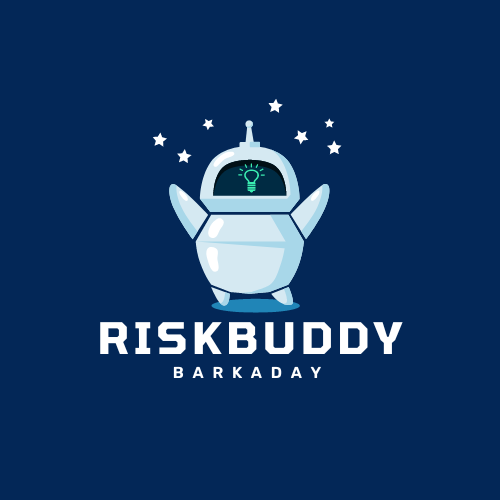In the ever-evolving landscape of cybersecurity threats, QR code and attachment phishing have emerged as the latest methods that cybercriminals use to ensnare unsuspecting victims. As organizations strive to bolster their defenses against these sophisticated attacks, RiskBuddy has introduced an innovative solution through its phishing simulation platform. This new feature, designed to simulate real-world phishing scenarios, equips companies with the tools necessary to educate and prepare their teams against the cunning tactics employed by attackers today.
The Emergence of QR Code Phishing
QR codes have become ubiquitous in our daily lives, offering a convenient bridge between physical and digital worlds. From marketing campaigns to payment systems, these seemingly harmless squares of black and white patterns have simplified the way we access information and services. However, this convenience also presents a lucrative opportunity for cybercriminals. By embedding malicious links within QR codes, attackers can direct individuals to phishing websites, where personal and financial information is harvested. The insidious nature of QR code phishing lies in its ability to bypass traditional vigilance against suspicious links in emails or messages—after all, a QR code doesn’t reveal its destination until scanned.
The Perils of Attachment Phishing
Attachment phishing, while more familiar to many, continues to be a highly effective tool in the cybercriminal’s arsenal. This method involves sending emails with attachments that appear legitimate but contain malware designed to compromise the recipient’s device or network. The sophistication of these attacks has grown, with documents masquerading as invoices, work orders, or even COVID-19 information, exploiting the recipient’s trust and curiosity. Once opened, these attachments can unleash a range of threats, from ransomware to spyware, granting attackers access to sensitive information or control over critical systems.
RiskBuddy’s Phishing Simulation Platform: A Proactive Defense
Recognising the evolving threat landscape, RiskBuddy has rolled out a new feature in its phishing simulation platform, specifically targeting QR code and attachment phishing. This innovative tool not only simulates these attacks to test employees’ responses but also educates them on the latest tactics used by cybercriminals. The simulations are designed to be both easy to set up and fully customizable, ensuring that they meet the unique needs of each organization.
Easy Setup with Automated Weekly Campaigns
For companies seeking to implement ongoing security awareness training, RiskBuddy offers fully automated weekly campaigns. These campaigns are pre-designed to cover a broad spectrum of phishing scenarios, including QR code and attachment phishing, providing regular and consistent training opportunities for employees. The automation of these campaigns allows cybersecurity teams to focus on other critical areas, confident in the knowledge that their workforce is continually being educated and tested.
Fully Customizable Phishing Simulations
Understanding that each organization faces unique threats based on its industry, size, and other factors, RiskBuddy’s platform also offers fully customizable phishing simulations. This flexibility enables companies to tailor the phishing scenarios to reflect the specific risks they are most likely to encounter. Whether it’s a QR code scam targeting event attendees or a sophisticated attachment phishing attempt disguised as a corporate communication, the simulations can be adjusted to challenge and educate employees effectively.
The Importance of Educating Employees
At the heart of RiskBuddy’s phishing simulation feature is the recognition that the most robust cybersecurity systems can still be undermined by human error. Educating employees about the dangers of QR code and attachment phishing—and how to recognize them—is crucial in building a comprehensive defense against these threats. The simulations not only test employees’ ability to identify phishing attempts but also provide immediate feedback and training on what to look out for, turning potential vulnerabilities into informed gatekeepers of the organization’s digital security.
Looking Ahead: Strengthening Cybersecurity Posture
As cybercriminals continue to innovate and find new ways to exploit digital interactions, the importance of proactive and comprehensive cybersecurity training cannot be overstated. RiskBuddy’s phishing simulation platform represents a significant step forward in equipping organizations with the knowledge and tools necessary to defend against the latest phishing techniques. By integrating these simulations into their regular security training programs, companies can significantly enhance their employees’ ability to detect and respond to phishing attempts, thereby strengthening their overall cybersecurity posture.
In conclusion, the rise of QR code and attachment phishing represents a significant shift in the cybersecurity threat landscape, demanding an equally sophisticated response from organizations. RiskBuddy’s phishing simulation platform offers a powerful solution, enabling companies to prepare their teams against these modern threats through practical, hands-on training. As we navigate the digital seas, such proactive measures are essential in safeguarding our information and systems against the rising tide of cyber threats.
